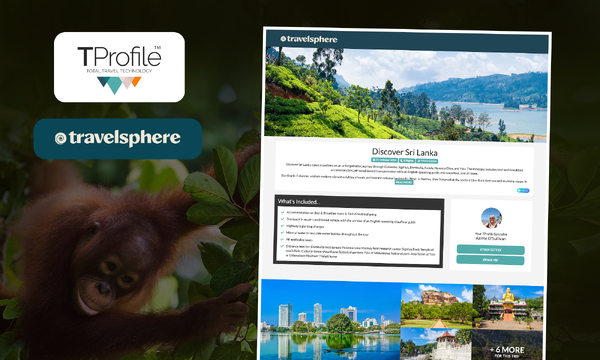Don't lose human touch amid Covid crisis, agents told
 Gary Noakes
Gary NoakesAgents must not lose their human touch after the Covid-19 crisis, despite significant advances in digital platforms, a WTM seminar concluded.
The online discussion – The future of loyalty in tourism: What are we learning from the Covid-19 crisis? – heard from Kelly Cookes, Advantage Travel Partnership leisure director, who argued the human approach was best in the current environment.
“It’s never been a case of a person versus technology, it’s about getting the right blend,” she said. “At the moment, we’re seeing more of a trend towards wanting interaction with a human being.”
She said the refunds issue had “undoubtedly had an impact on consumer trust”. “Our industry in particular has got some really bad press because of how things have been handled," she said.
Cookes added a lack of a standard approach had damaged public confidence and frustrated consumers. “Feedback from our members is that customers really value that they can pick up the phone and talk to a human being.”
Planning travel at the moment, because of Covid-19, had a complexity to it that also needed an expert human touch, she said. Members, said Cookes, have been steered away from sales messaging and towards content messaging.
“We have tried to get them to talk to their customers about different destinations and types of product without actually trying to push a sale.”
The coronavirus crisis, said Cookes, was teaching Advantage members different ways of working that would persist after it was over.
“The biggest thing we have seen from members is moving to engage with customers in a more digital way," she said. "When they have got a business premises, the tendency is to do a lot of that face to face, whereas now they are a lot more comfortable with things like Zoom calls.
"I think that will stay and I think we’ll see a traditional high street agent move towards offering different ways of engaging with customers.”
Amazon-style approach ’not the answer’
The panel debated digital marketing techniques based on previous purchases.
Maksim Izmaylov, founder and chief executive of Winding Tree, a new decentralised market for travel that uses blockchain, said Amazon-style marketing was not necessarily the answer in travel.
“I think we’re losing quite a bit here in terms of serendipity; maybe I want to be surprised, baffled," he said. "With analysis of data and offering only things this algorithm thinks you’re going to choose I think we’re losing quite a bit in terms of that.”
Cookes agreed: “I’m a big user of the likes of Amazon and prone to seeing something it suggested and dropping it into my shopping basket. I’m not as sure we can do that with emotional purchases like holidays - business travel potentially more so because you might be doing similar trips.”
But Petya Milkova, Wirecard’s head of global business development – travel, said: “The two aren’t contradictory; in order to surprise your customers, it’s better to know your customers.”
However, she admitted: “There’s nothing worse than being offered the same destination where I’ve already been.”
Izmaylov predicted the future would see less data harvesting possibilities as privacy solutions became more common. “Customers should own their data completely and control it at all times.”
He said consumers should only have to share data with those they choose “and then lock it up again”.
Chairing the meeting, Paul Richer, senior partner, Genesys Digital Transformation, concluded travel was taking the right approach in blending the human interface with technology.
“I don’t see that there’s any paradigm shift in the way the travel industry has to behave now and in the future – just understand the technological opportunities available and grasp them and maintain that engagement with your customers,” he said.
Sign up for weekday travel news and analysis straight to your inbox

Gary Noakes
Supplier Directory
Find contacts for 260+ travel suppliers. Type name, company or destination.












